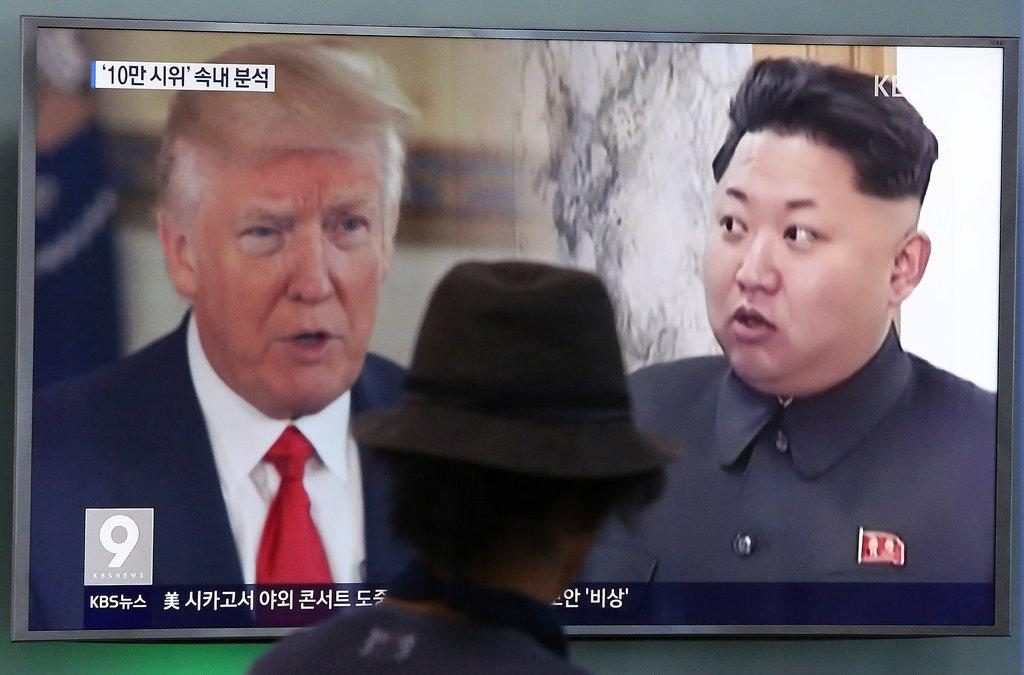The Daily Escape:

Waimea Canyon, Kauai, Hawaii – 2018 photo by Chaebi
North Korea made big news on Wednesday. From the WaPo:
North Korea is rapidly moving the goal posts for next month’s summit between leader Kim Jong Un and President Trump, saying the United States must stop insisting it “unilaterally” abandon its nuclear program and stop talking about a Libya-style solution to the standoff.
The latest warning, delivered by former North Korean nuclear negotiator Kim Gye Gwan on Wednesday, fits Pyongyang’s well-established pattern of raising the stakes in negotiations by threatening to walk out if it doesn’t get its way.
North Korea (NK) has been a challenge for several presidents, and Donald Trump will be no exception.
NK has nukes, and possibly, the means to deliver them as far as the east coast of the US. South Korea is armed, and our military backs them up. Neither side has a true advantage militarily. Whichever leader best uses diplomacy in the face of a military stalemate will win.
But that leader might not be Donald Trump. Kevin Drum notes this:
The upcoming summit meeting with North Korea has been orchestrated entirely by Kim Jong-un. It started with his outreach at the Olympics. Then he proposed the meeting with Trump. He halted missile testing. He met with South Korea and it was all smiles. He’s implied that he’s in favor of complete denuclearization. He released three American hostages. And he’s now planning a public spectacle of destroying North Korea’s nuclear testing site.
And what did Kim get in return? He got this from John Bolton on Fox last Sunday: (emphasis by Wrongo)
WALLACE: Now, the joint statement from the two Koreas on Friday called for…a nuclear-free Korean peninsula and some people have suggested the North Koreans will give up everything they’ve got. But in return, the U.S. would agree that we are not going to allow any nuclear-armed airplanes or nuclear-armed ships on the Korean peninsula.
Is that acceptable?
BOLTON: Well, we certainly haven’t made that commitment. And again, I’m looking at the Panmunjom declaration as they call it in the context of a series of earlier North-South Korean agreements. And again, looking at the 1992 joint declaration, when they said nuclear-free, they meant with respect to the two Koreas.
WALLACE: So, you don’t view this as involving any kind of commitment from the U.S.?
BOLTON: I don’t think it binds the United States, no.
Personnel is policy, and Trump’s recent personnel moves brought in new wacko hardliners in key positions. Trump seems to be under the impression that the Singapore meet-up is a surrender ceremony, while the NK’s see it as two nuclear equals attempting to negotiate a final peace deal.
And Bolton is playing his usual games. It’s been true since the 1990’s that Republicans have a reflexive need to press for whatever seems more “hawkish” than whatever the Democrats had tried when they were in control.
That includes Republicans saying that “regime change” is the only realistic option when states object to the US, or its objectives in their region. The GOP is always outraged that the feckless, effeminate Democrats haven’t backed regime change since Vietnam. Iran is the GOP’s latest experiment, where throwing away the JCPOA was their goal, and Trump delivered it.
Of course, all foreign policy troubles would be solved if only our Adversaries and Enemies were magically replaced by Friends and Fans, but for some reason, that never happens.
The NK’s are doing what they have always done whenever negotiations get to this point. What Kim is doing is so blindingly obvious and predictable that only pundits and politicians could be surprised by it.
Trump says his strength is that he is unpredictable. But, in the case of NK, he put all his cards on the table, assuming that his strongman tactics would lead to peace and a legacy. Instead, it looks like Kim simply upped the ante on being unpredictable. Kim may think Trump wants the deal more than NK.
Seventeen years ago, Clinton made a deal to give NK aid and trade in return for halting nuclear weapons development, backed by inspections and monitoring. It wasn’t a perfect deal, and NK broke it, at least in spirit. The US decided to break the deal explicitly because the incoming George W Bush administration wanted regime change. The Bushies blamed NK’s breaking the deal in spirit, and wouldn’t give NK the promised aid.
Remember when Trump flattered Kim, calling him “very honorable”? What’s a guy gotta do to unify a peninsula around here?
And Trump was THIS CLOSE to becoming president for a second term based on a foreign policy triumph and a Nobel, too. Such a shame. Well, there’s always Syria.
Or, Israel. Or, Iran. Or, Afghanistan.
So many deals to try, and so few skills.


